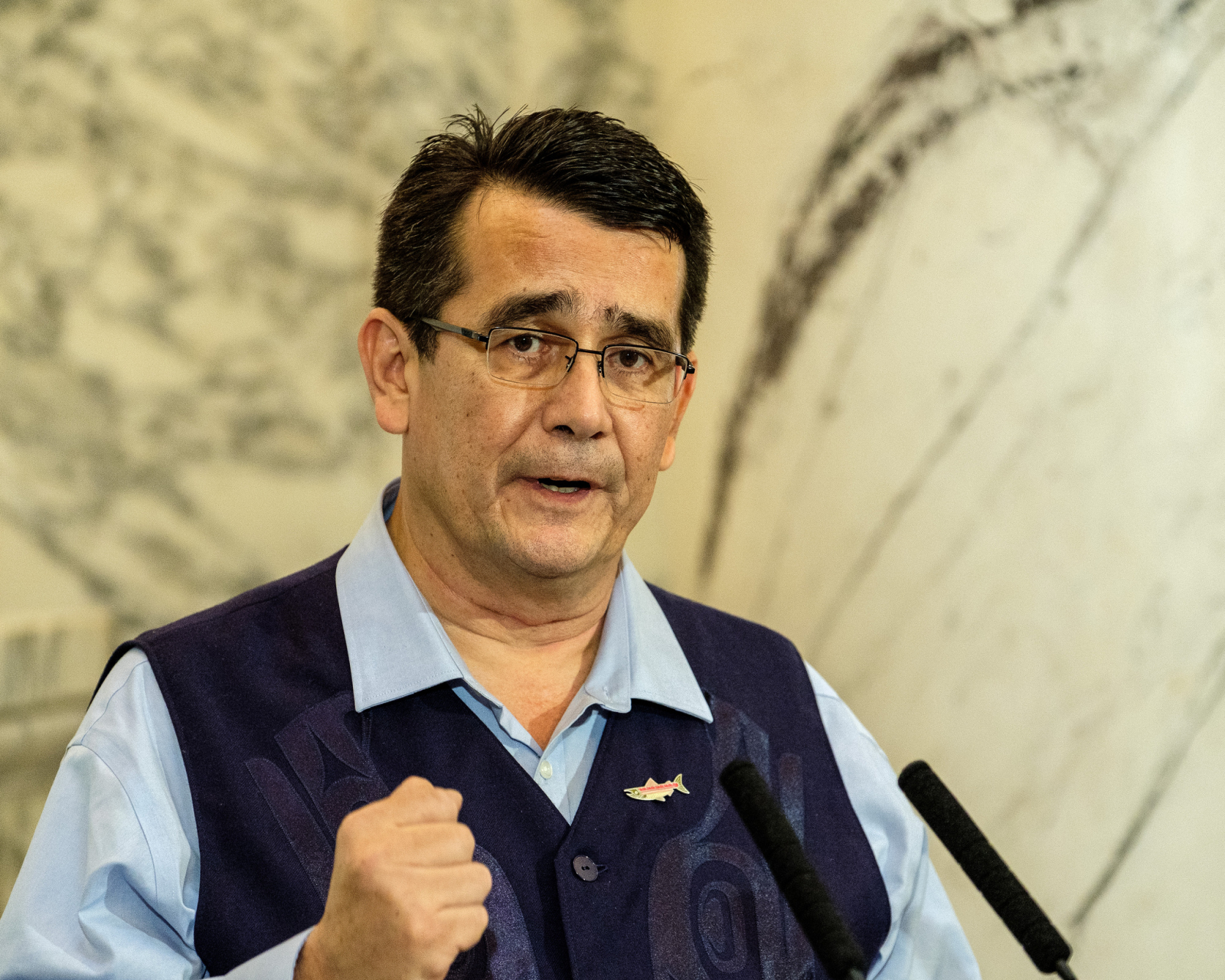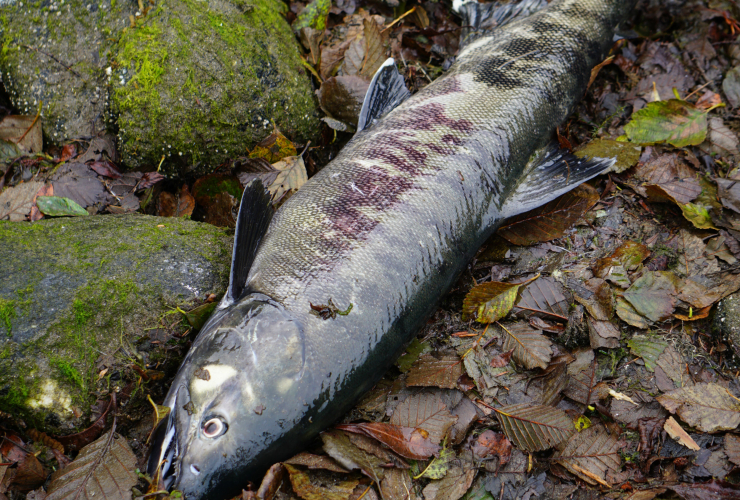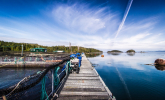Support journalism that lights the way through the climate crisis
The provincial government, First Nations and industry have come together to create a plan to shut down 10 fish farms in the Broughton Archipelago in the next three years.
The future of the remaining seven fish farms in the area will be dependent on whether First Nations and industry can come to an agreement.
Premier John Horgan said the plan will mean migrating wild salmon will have a safe route through the area and “wild salmon can return to the abundance that we knew in the past.”
Horgan characterized the discussions as “government-to-government” and said the talks were not always easy, but that they will serve as a template for talks in other sectors.
“I am absolutely stoked about wild salmon and a way forward for this iconic species,” Horgan said. “People of good will coming together can do extraordinary things.”
The recommendations to shut down the farms and implement First Nations monitoring and oversight of fish farm operations were part of a process undertaken by the province and the 'Namgis First Nation, the Kwikwasut'inuxw Haxwa'mis First Nations and Mamalilikulla First Nation. The two companies that operate fish farms in the area, Marine Harvest Canada and Cermaq Canada, have agreed to the recommendations.
"The success of this process shows that when the provincial government and First Nations work together in the spirit of recognition and respect, taking into consideration the concerns of the federal government and industry, we can deliver results in the best interests of all who live and work here,” Horgan said.
Chief Robert Chamberlin, elected Chief Councillor of the Kwikwasut'inuxw Haxwa'mis First Nation and First Nations' chair of the steering committee, said the agreement is a “significant positive step in a better direction.”

Like Horgan, Chamberlin said the decision-making model can be expanded to other areas, like forestry, water licenses and other activities that contribute to climate change.
"This process respected the need for Indigenous peoples' consent and allowed us to work together to establish an orderly transition of the finfish farm tenures, while recognizing the needs of other governments, industry and local communities," Chamberlin said.
He said the group was able to strike a balance between the needs of First Nations and the needs of industry.
“There was some give, there was some take,” Chamberlin said.
Adam Olsen, B.C. Green Party spokesman for agriculture, said B.C. still lacks a provincial strategy to protect wild salmon.
“There are approximately 50 active fish farms across B.C. Wild salmon are a migratory species that swim thousands of kilometres through numerous territories,” Olsen said. “The only way the province is going to assure the cultural, social and economic importance of wild salmon to Indigenous communities are respected is by implementing a comprehensive approach.”
Representatives from the two affected companies expressed support for the plan.
“As our province changes, businesses must evolve and that’s what we’re doing,” said Diane Morrison, managing director at Marine Harvest. “Going forward, we see the implementation of the recommendations as a positive step toward building mutual goodwill, trust, and respect as we work to earn First Nations consent of our operations in their territories."
David Kiemele, managing director at Cermaq Canada, called the process “reconciliation in action.”
When asked about job losses and why the two companies were willing to shut down their operations, Horgan said the process was unprecedented.
“We’ve never had discussions like this before. That’s the source of the optimism in the room,” Horgan said.
He also said some of the fish farms may be moved elsewhere.
The First Nations oversight will include monitoring fish health and screening for salmon lice, pathogens, disease agents and diseases before and after introduction of fish into the fish farms, the province said.
Yesterday, Jay Inslee, governor of Washington State, announced $1.1 billion to help the resident Orca whales and restore wild salmon stocks. When asked about this, Horgan said B.C. is going to work with Washington on those goals.
“We share a border, we share an ocean and the species that move in and around Vancouver Island don’t know nationality, they know what they’ve always done and where they’ve always gone,” Horgan said.
The David Suzuki Foundation said the decision will help reduce the risks to wild salmon and is a significant step for nation-to-nation decision making.
“Wild salmon recovery is extremely important to the health of ecosystems and Indigenous culture,” said Jay Ritchlin, David Suzuki Foundation’s director-general for western Canada. “We need to make sure efforts to restore wild salmon habitat and increase their survival take priority over potentially counterproductive distractions like hatchery-based enhancement.”
Tracy Sherlock writes about B.C. politics for National Observer. Send your tips and ideas to [email protected]
This is a start, and needs to
This is a start, and needs to be applied widely, and quickly. There are too many threats to our ecosystem, compounded not only by climate change, but by the widespread idea that our industrial and technological models can improve on nature. It hasn't worked out that way in many cases, the reality being much more of a natural disaster.
Urban folk eat farmed salmon and accept idiotic labels like 'organically raised" (as if swimming in your own excrement is cancelled by food pellets labelled organic), while the wild stocks face disease from fish farm lice and predation from a non native Atlantic salmon. Whales suffer, the inland forests suffer, native fishermen suffer...............but OMG!!!
The profits those fish farms rake in must be amazing........since there's so much left over to advertise the benefits of industrial aquaculture. Corporate neo-liberal capitalism has to be reined in....and it will be. By good governance, or natural collapse.






Comments